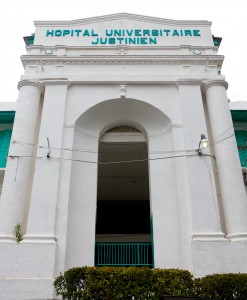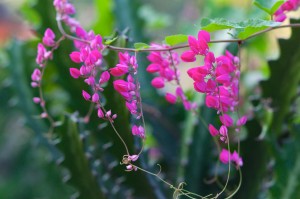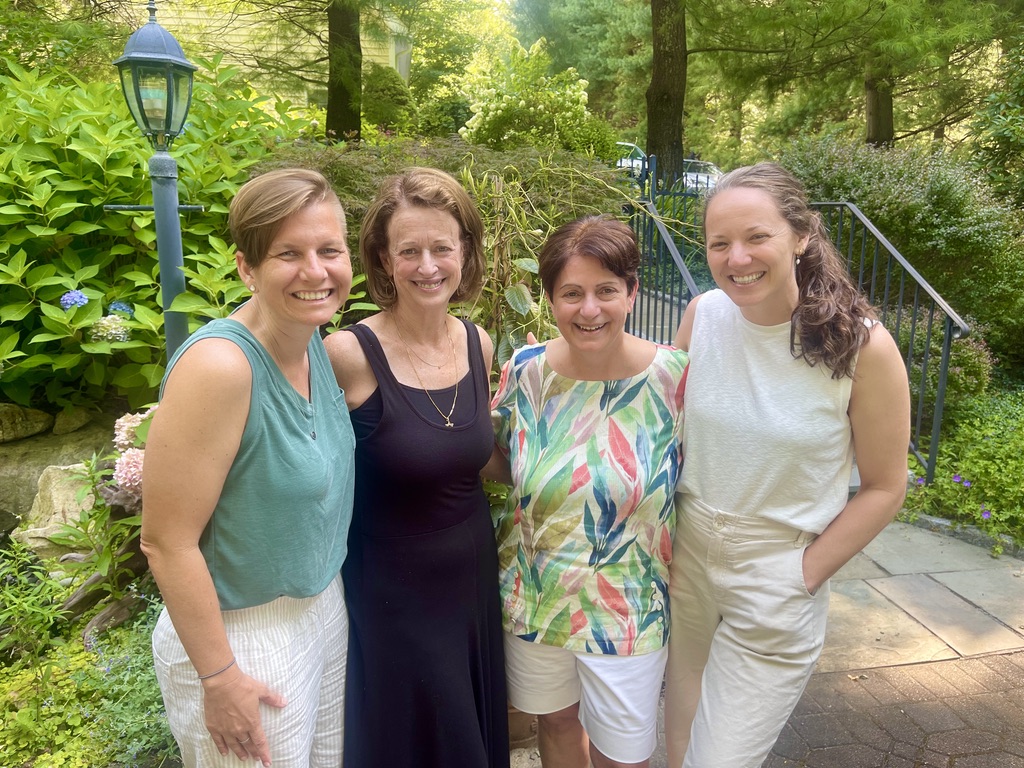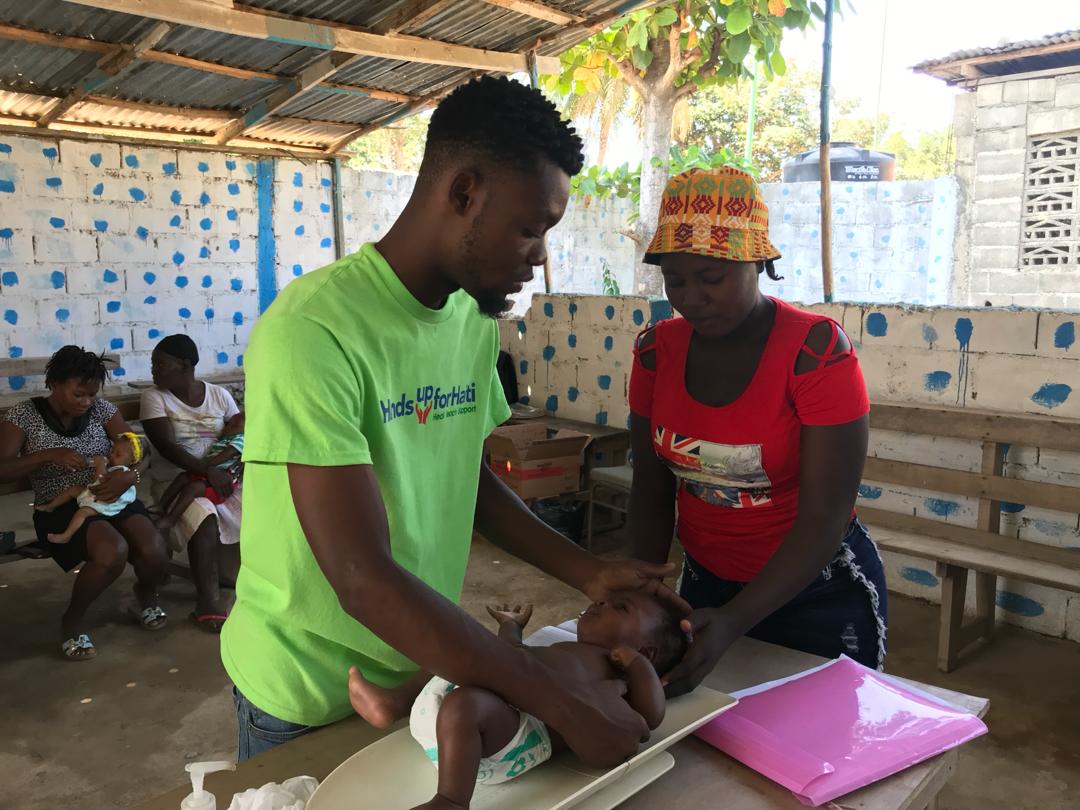The Physician:
The most poignant moment of the this trip for me came when I toured the public hospital. I was with another physician, a nurse, and a student. As we toured, we saw how much could be done with so little. The parents were at the bedside helping with care. The moment came when we entered the pediatric unit where there was a severely developmentally delayed malnourished child moaning in a crib. The nurse in charge told us she was a “foundling” or an abandoned child. Three weeks previously the child had been brought to the hospital with cholera. After she recovered, the family did not come back to claim her. The nurse took over her care, paying for the medication and spending time with her. I took the student over to this child to touch her and pat her to comfort her. As he placed his hand on her chest, she wrapped her arm around his and stopped moaning. As we moved on, in our tour, I looked back to the student unable to leave the child. He couldn’t tear himself away knowing that the simple act of human touch was what she needed. I believe at that moment, I saw a man decide on his life’s work. I know that the student will never look at life the same, I know for certain the same is true for me.
Janel Hino: Neonatologist, Holy Cross Hospital Maryland; March 2015

The Student:
Whenever someone asks about spring break, they want the highlights. The best part, the funniest story, the craziest adventure. Never before have I struggled with coming up with an answer. I pick one of my favorite stories, and I enjoy rehearsing this story again and again for anyone who asks.
Trying to explain my trip to Haiti was on an entirely new level. And it was not for a lack of stories. Quite the opposite, honestly. I have funny stories of times with my Haitian futbol buddy Mento. I have the amazing story of being given the privilege to triage 100 patients on my first full day in Haiti. I have inspiring stories of the doctors and nurses and volunteers I was so blessed to work with, and the friendships I made that will have an impact on me for the rest of my life.
I share these clips of stories because I wish to make it very clear that this spring break was without a doubt the best possible trip I could have asked for. I laughed, cried, laughed so hard I started crying, and found myself and my identity among some of the most incredible people I have been given the chance to meet on this earth.
Every second I spent in Haiti, I knew where I belonged, and I knew exactly what I was called to do in life.
And I could stop my story there. Sometimes, while telling this story to friends, I have. But that’s not where Haiti’s impact on my life stopped. Far from it.
There is a reason that Hands Up for Haiti was created. Medical infrastructure, infrastructure as an entirety, is desperately needed in Haiti. Hands Up for Haiti, in conjunction with a variety of organizations such as HHA, have made incredible improvements in the last decade. Not only is direct medical care provided, but a wide array of classes, ranging from blood pressure courses to neonatal care, have ensured that the practice of medicine will continue to grow and improve within the Haitian medical community consistently.
Nonetheless, so much more can be done, and needs to be done. The most essential needs ranging from clean water to food to housing are at times very scarce. Awareness and support for the developmentally disabled is almost nonexistent, and education is lost because of the desperate attempts of families to simply satisfy their most basic physiological needs.
Through malnutrition cases and severe cases of viral and bacterial infection, I finally became aware of the severe costs endured when these needs are not met. This realization reached its pinnacle in a moment, during a visit to Justinian Hospital, one of the more major public hospitals near Cap Haitian.
Physicians and nurses at Justinian had not been paid by the government in over eight months. When we arrived, the hospital was stressed far over its capacity with only a fraction of the staff actually in attendance. Nonetheless, the Haitian doctors present were gracious enough to give us a tour of the grounds.
While in the pediatric unit, I saw a number of very ill children. One of these children, in the far right corner of the room, stopped me dead in my tracks. I actually saw this girl before the doctors and nurses I was with, but I was too stunned to formulate words, much less a sentence. Lindsay, one of the team nurses, and Janel, a doctor on our team, asked me if I saw the young child, and I could only nod.
This young, beautiful girl was six years old, but she looked about 3 or maybe 4. Her arms and legs were essentially skin and bones, and every one of her ribs protruded from her chest. Janel almost instinctuively rubbed the girl’s chest, speaking to her and trying to ease her of some of the pain she was enduring. As Janel did this, we learned this girl was found nearly three weeks ago.
Abandoned. In a home. By her family. Left essentially to die.
So malnutritioned that neurological damage had taken a serious toll on her mind and her body.
At that point I think the only way to describe my emotions was a general sense of feeling numb. I couldn’t really find a way to process everything I had heard and everything I saw in front of me. I didn’t know what to say, and I had no idea what to do.
At this point Carol Ann, another team doctor, asked me if I wanted to try to comfort the girl, to grab her hand, rub her shoulder. As I tried my best to comfort this girl, my mind spun as I felt each of her ribs, and thought about the countless list of gifts I take for granted each day of my life. I tried to smile, and spoke the little bit of Creole I had picked up that week, and this young girl seemed to truly feel, even appreciate my presence.
After some time, Lindsay gently told me we were asked to move to the next part of the hospital by the Haitian doctors. I wished this young girl an escape from her pain, but just simply wasn’t sure what else to do. I lifted my hand off the girl, and as I stood up, she lifted her hands, wrapping her fingers around my index finger.
An act of compassion. Amidst her pain, the cruelty in her life, the obstacles that lay in her way, she grabbed my hand and held me. It took every bit of me to not break down that moment in that hospital, and as I reminisce on that moment I can’t help but do just that. That beautiful young girl, whose name wasn’t known and whose name I will never know, changed my life. Made me feel the incredible power of humanity and compassion in a way I never had before.
That humanity is existent is so many men and women around me. The doctors and nurses that worked tirelessly in that hospital despite not being paid, the nurse who found and brought this young girl into the hospital through her own support, the absolutely incredible team I was so blessed to join.
And most importantly,
The entire organization of Hands Up for Haiti. What is stands for. Who it’s made of. What it fights for.
A world that runs on compassion.
Bobby Nolan: College Student, United States Naval Academy, March 2015



